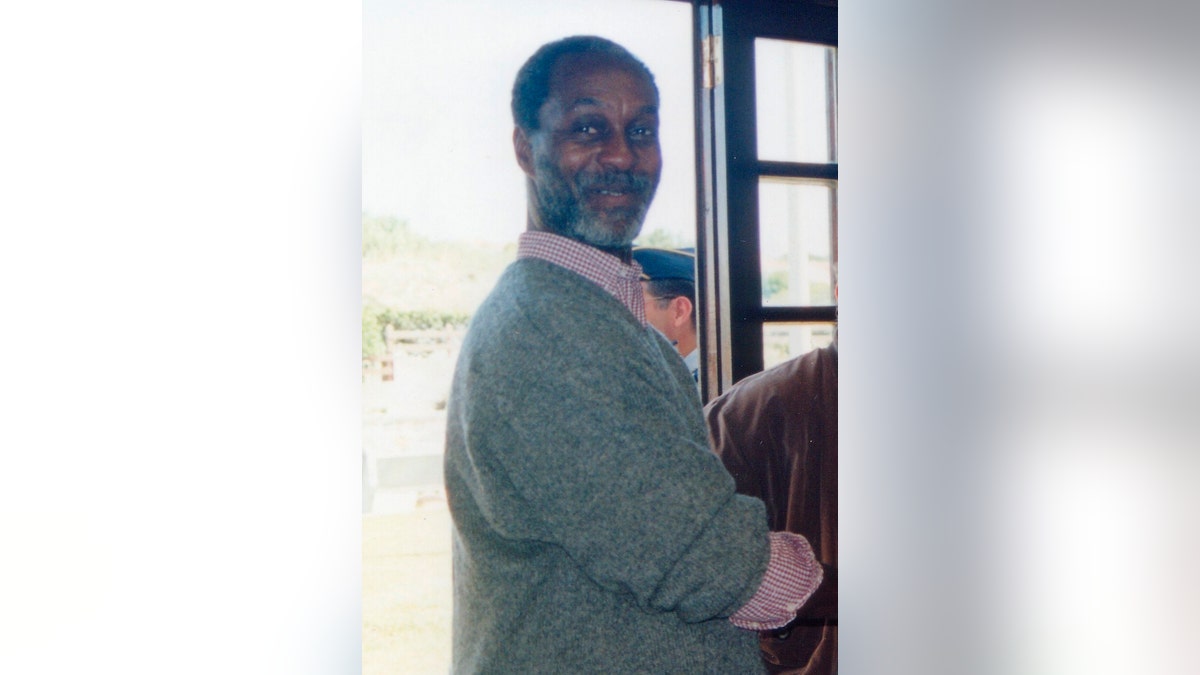
U.S. fugitive George Wright is seen in a post office in Praia das Macas, Portugal in 2000. Wright was arrested Sept. 26, 2011 by Portuguese authorities at the request of the U.S. government after more than 40 years as a fugitive, authorities said. (AP2011)
LISBON, Portugal – The lawyer for captured American fugitive George Wright on Thursday filed his arguments in a Lisbon court against his client's extradition to the U.S., saying he should be allowed to serve the rest of his sentence in Portugal.
The U.S. is trying to extradite Wright to serve the rest of his 15- to 30-year sentence for a 1962 murder in New Jersey. Wright spent seven years in prison before breaking out in 1970 and had been on the run for 41 years until his arrest last week in a hamlet near a stunning beach about 25 miles from Lisbon, Portugal's capital.
Lawyer Manuel Luis Ferreira contends that Wright is now a Portuguese citizen and should be allowed to serve the remainder of his sentence in Portugal, where his wife and two grown children live. Wright got Portuguese citizenship through marriage after Guinea-Bissau, a former Portuguese colony in West Africa, gave him the new name of "Jose Luis Jorge dos Santos" and made him a citizen.
"At the heart of my argument is that he's Portuguese and he has a Portuguese family," Ferreira told The Associated Press.
Wright became Portuguese in 1991 when he married his Portuguese wife, and he used his new identity during that process, Ferreira said.
The identity from Guinea-Bissau was granted after the country gave Wright political asylum in the 1980s, and that was accepted by Portugal, according to the lawyer.
Ferreira told the AP he delivered almost 100 documents to the court to justify the case against extradition on Thursday, the deadline for his submission.
He said his case is justified on numerous grounds "such as the penal code, constitutional rights and the (international) convention on human rights." He said he couldn't reveal more details because of confidentiality laws governing court cases in Portugal.
The judge overseeing the case will now ask lawyers for the U.S. for counter-arguments and may call witnesses before announcing his decision in coming weeks. That decision can be appealed to higher courts, and the entire process could take months or longer.
U.S. Justice Department spokeswoman Laura Sweeney declined comment Thursday on Ferreira's legal arguments and the American legal strategy to force Wright's return to the U.S.
Wright broke out of Bayside State Prison in Leesburg, New Jersey, on Aug. 19, 1970. He was also part of a Black Liberation Army group that hijacked a U.S. plane to Algeria in 1972, the FBI says.
His wife, Maria do Rosario Valente, told Portugal's TVI television last weekend that her husband's asylum process in Guinea-Bissau was overseen by Vasco Cabral, a hero of the tiny nation's struggle against Portuguese colonial rule.
